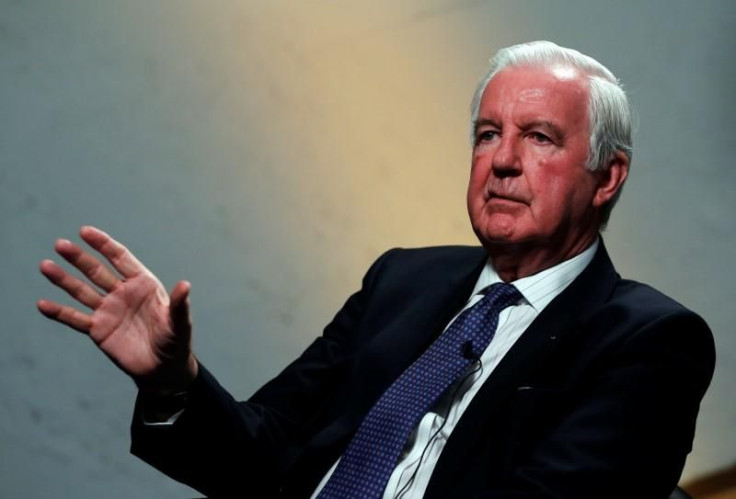WADA Chief Reedie Says Meldonium Found In 47 Of 49 Failed Russian Dope Tests

World Anti-Doping Agency (WADA) President Craig Reedie disclosed most of the Russian sportsmen and women who have failed drug tests in the last six months did so because meldonium was detected in their systems.
Reedie said the drug, which Russian tennis player Maria Sharapova told a news conference she had used for health reasons after she failed a drugs test earlier this year, was responsible for 47 of the 49 adverse analytical findings in Russia between November 2015 and May 2016.
Meldonium, a Latvian drug which helps to adjust the body’s use of energy and can boost stamina and aid endurance, was added to WADA’s list of banned substances at the start of this year.
Since then, Russians from several sports, including rugby sevens, biathlon, speed skating, volleyball and athletics, have returned positive tests for the drug.
“This drug is not licensed for Europe, not licensed for the United States. It doesn’t fit within our systems. Clearly it is an issue,” Reedie said in a wide-ranging interview with the website, insidethegames.
WADA said last month doubts over how long meldonium stayed in the body meant athletes who had tested positive for it before March 1 could have their bans overturned.
Reedie said the WADA task force investigating Russian drug use was arranging to meet former Sochi Olympic laboratory director Grigory Rodchenkov, who alleged in a recent interview Russian authorities were involved in a cover-up in which samples were switched to avoid dozens of their athletes being exposed as drug cheats at the 2014 Winter Games.
“We are arranging to meet Mr. Rodchenkov because we need all his information,” the WADA president said. “Part of that investigation will have to be a forensic examination of the containers that have been used.
“We will want to speak to the manufacturers and we will inevitably at some future and probably fairly early date want to look at the samples he claims he has altered which are held in the Lausanne laboratory. The IOC (International Olympic Committee) have agreed to assist us in that task.”
Reedie said the seven percent failure rate of athletes at the Beijing Olympics in 2008 was disappointing, adding he would be very interested to see the figures for London 2012 which will be announced shortly.
He said the Brazilian government had invested heavily in the anti-doping services for August’s Rio Games and a WADA-IOC task force had found the laboratory was performing satisfactorily.
“The athletes should be satisfied that the sample they give at the Games will be properly analyzed by accredited experts. ... Much effort is going into delivering exactly that.”
Reedie said he planned to ask the IOC soon to match the money he had raised from governments to fund anti-doping work.
“My guess is that by roughly the end of June I will have raised about $600,000 from governments and I will then formally write to the IOC and ask them to match it.
“If that comes about, I then have obviously up to $1.2 million as an investigations fund.”
© Copyright Thomson Reuters 2024. All rights reserved.











